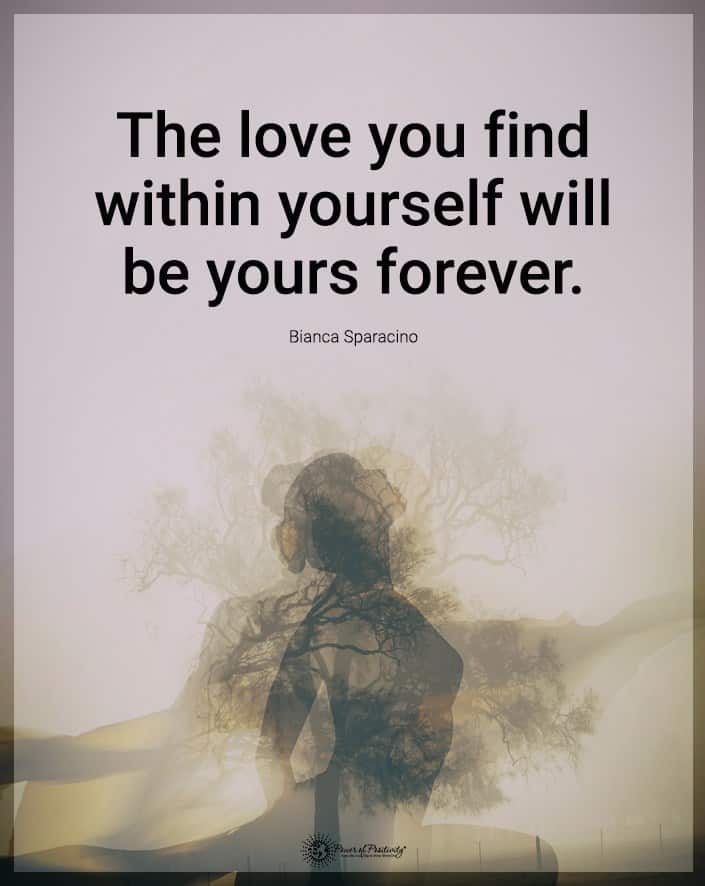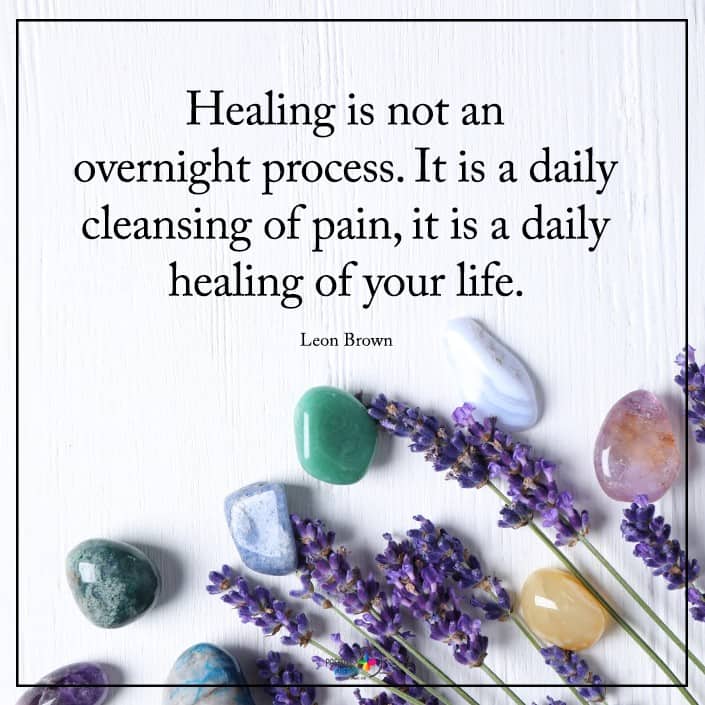After you’ve gone through an emotionally abusive situation, all you can think is, “how am I ever going to get better”? What can you do in cases where the world seems to be crumbling around you? Can you get back on your feet and start healing?
When experiencing emotional abuse, it is expectable to feel defeated and not have the power to love yourself. That can lead to a lot of self-consciousness and self-judgment. But that mentality isn’t going to help you get any better. Instead, it would be best if you tried to practice self-kindness. So, here are some ways a positive attitude can help you heal after you’ve experienced emotional abuse.
What Is Self-Kindness?
Self-kindness, or self-compassion, is not so different from being kind towards other people. Kindness arises when you see that someone is suffering, you acknowledge their pain, and you try to take actions that can help them. In the same way, a person practices self-kindness when they acknowledge their pain and are proactive in healing.
Self-kindness is an idea found in Buddhist cultures.
Some of its central tenets are the following:
- Self-compassion instead of self-judgment
- Common humanity instead of isolation
- Emotional regulation instead of ignoring your feelings
Most people, especially those who have experienced abuse, have a negative view of themselves when going through tough times. People believe that they should smile through the pain and get over it. That mentality can be very harmful, especially for victims of abuse. It doesn’t allow you to acknowledge that the pain you are feeling is valid. On the other hand, self-kindness is based on the idea that whatever you are feeling is legitimate and shouldn’t be ignored. Instead of thinking, “I should just get over it,” you should think, “I am having a difficult time right now.”
Acknowledging your feelings isn’t enough to be self-compassionate. It would be best if you also accepted the change. When people think of change, they usually associate it with the idea that something wrong about them should be fixed. But that couldn’t be further from the truth. Self-kindness allows you to accept change while understanding that who you are is enough. You are not changing because you are worthless or something wrong with you, but because you want to feel happier.
Self-kindness is positive and proactive. The absence of negative attitudes doesn’t mean you are practicing self-kindness. Just because you aren’t judging yourself doesn’t mean you are self-compassionate. You need to take that extra step and act in positive ways. Remind yourself how important you are, treat yourself, rest when you need to, and so on.
It would be best if you accepted that you are human and you are going to have bad days sometimes. Just because you ended up in a bad situation, that doesn’t mean you are weak. People who are emotionally abused are always the victim, and you should never blame yourself if that happens to you.
3 Ways Self-Kindness Can Help You Heal Emotional Abuse
To practice self-compassion, you need to allow yourself to become an essential person in your life. Whenever you encounter hard times, think about what you would do if a friend were in your shoes. Would you help them? If so, how? When you have your answer, use that plan to help yourself. Allow yourself the same kind gestures you give everyone else.
1. Self-Kindness Allows For Reflection
If you’ve just escaped an abusive situation, the last thing you might want to do is think about what you’ve been through. To protect yourself, you will try to bury everything deep inside and forget about it. But the trauma manifests whether you think about the past or not.
Because trauma affects you subconsciously, you won’t be able to run away from it. If you have been manipulated and gaslighted, you will inevitably develop trust issues. If you run away from your emotions, you will feel their repercussions without dealing with the root cause. This is why it’s better to look back and understand what you’ve been through.
When you reflect, you can understand what actions caused your trauma, so you’ll know your triggers. The more you look back, the more you’ll know how you are affected. What sort of trauma do you have, and why has it developed. Sometimes, people who have been abused lock their memories in the back of their minds, and then they don’t even understand why they have issues interacting with others. This behavior is very harmful and can affect you for life.
How To Increase Self-Awareness by Reflecting
So, what role does self-love play in this equation, and how can it help you reflect? When you are practicing self-kindness, you allow yourself to feel your emotions to their true extent. You will validate your trauma and go through everything step-by-step. Of course, some people will need a period in which they don’t think about their abuse. This is different from person to person. But that period can’t last forever.
After you’ve cooled off, you need to go through everything and validate your emotions. Take a day for yourself, grab a cup of tea, and think about everything that has happened. Only once you understand what you’ve been through can you start to heal actively.
2. Self-Kindness Helps You Validate Your Pain
While understanding what you’ve been through is a crucial first step, you have to also validate your emotions. Most people who experience emotional abuse tend to blame themselves for what happened. They don’t see themselves as the victim, relatively as weak. They might think they deserved what happened to them.
This is where practicing compassion towards yourself can help you. When you allow yourself to put everything into perspective, it can help you understand you have been wronged. When you start having a positive attitude, you will understand that you were hurt, and it’s not useful to beat yourself up over it. Instead, you will start to accept yourself little by little. You have to learn to stop judging yourself for feeling defeated and hurt.
Those are normal emotions that are legitimate. Everyone feels that way at a certain point in their life. You don’t have to be tough; you don’t have to seem fine when you are not. Allow yourself to feel and understand that you are allowed to show your pain. If you need to lie in bed all day and think about what happened, do it. If you need to cry, do it. Your pain is valid, and self-kindness will help you understand this.
How To Be Kinder To Yourself
When practicing self-kindness, your focus will shift from “what will others think if I appear weak?” to “what do I feel?”. If you are still in that abusive situation, this is especially important. You have to learn to drown out their manipulation. Don’t focus on what the people abusing you think. Focus on what you feel. The most essential validation you will get is the one you give yourself.
And when you are being emotionally abused, you are probably feeling real pain. Your chest constricts, you can barely breathe, your head hurts. You need to understand that the pain is more important than the insults people throw at you. Don’t sacrifice yourself to make them comfortable.
If you need, sacrifice your relationship with them to save you. Self-compassion can help you understand that you matter much more than your abuser, and you should seek to heal your wounds.
3. Self-Kindness Allows You To Act
The most challenging thing for people who have gone through abusive situations is to be proactive. Most victims think they are unworthy of help, and they punish themselves for what happened. That behavior can be very toxic, but, luckily, it can be changed using self-love.
When you start allowing yourself to care about your well-being, you will be in a better place to do the things you need to do. If you are in an abusive environment, chances are you won’t leave as not to enrage your abuser. But, with the help of self-compassion, you will understand you are worth more than your abuser’s feelings.
That can give you the boost you need to set yourself free of that situation. Or you can at least reach out for help. The more you value yourself, the more courage you will have to ask other people to help you get through everything.
Find A Healthier Environment
Once you get out of that environment, you still need to practice self-kindness. If you feel like you can’t trust people anymore after what you’ve experienced, don’t push yourself just because “you have to.” Allow yourself to have the space you need and even set boundaries. If you need to be alone, don’t go out just because friends asked.
Stay in bed and watch movies if you think that will help. Communicate with people, tell them what you need, and make sure those needs are fulfilled. And that’s just one example. No matter your trauma, you should have the same approach: be kind and treat yourself.
Final Thoughts On How Self-Kindness Can Help You Heal Emotional Abuse
Being a victim of emotional abuse isn’t something you should take likely. While you might be dying to get back to a normal life, you need to heal first. Hiding your feelings deep in the back of your mind might seem like the easiest thing to do, but it isn’t in the long run. Self-kindness is the best way to cope with all the trauma you have been left with.
Self-compassion is all about treating yourself even when times are hard. You might be tempted to beat yourself up over what happened, but you need to understand that you are a victim. It is not your fault you were abused. You need to heal and grow so you can live happily for the rest of your life. Once you start treating yourself with respect, you will be better equipped with the pain.
Self-kindness allows you to reflect and understand your emotions. You can also start to validate what you are feeling and understand that your pain is something you are allowed to touch. Once you go through those steps, you will finally be ready to act in your best interest. Make the changes you need to make without judging yourself.
No matter how you choose to use self-kindness, it will help you heal or start the healing process. And, always remember that you deserve the same kindness you give everyone else around you.
The post How Self-Kindness Can Heal Emotional Abuse appeared first on Power of Positivity: Positive Thinking & Attitude.







